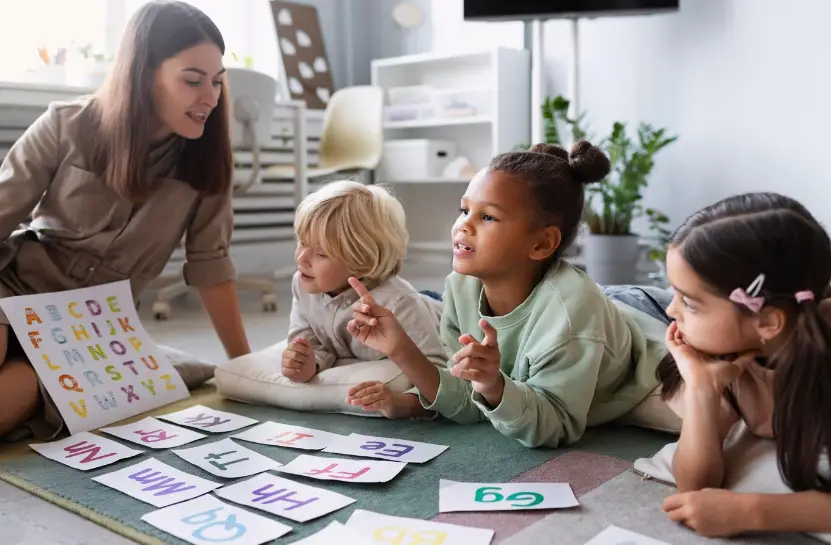The Importance of Bilingualism in Early Childhood Education

The concept of bilingualism implies simultaneous knowledge of two languages. Recently, this concept has been increasingly used in pre-school education programs. This is due to the growing interest in learning foreign languages at an early age. It helps children develop speech, language and mental abilities, as well as contributes to the formation of a cultural and intellectual level.
The concept is actively promoted in the international BIS Moscow preschool to help students develop not only language skills, but also general abilities.
Bilingual early education benefits
The benefits of bilingual early education include cognitive benefits (improved attention, memory, and logical thinking), better communication, empowerment, and linguistic development. Bilinguals have intercultural competence, social advantages and creative abilities. However, education also has problems related to delayed speech development, identification issues and language confusion. So, in more detail.
- Cognitive benefits
The implementation of the bilingual education policy early childhood really helps to strengthen cognitive skills: problem solving, memory and attention. This is due to the fact that when learning different languages, the brain is forced to work in multitasking mode, sharing information and processing it at the same time.
For example, when switching between English and Russian, the brain learns to manage information by switching between different systems of symbols and rules. This improves the brain’s ability to multitask and manage information, which has a positive effect on solving complex tasks and processing large amounts of information.
- Social and Emotional Benefits
The social and emotional benefits of bilingualism are that it promotes cultural awareness and recognition of diversity, as well as improves communication skills and helps children establish stronger relationships with people from different backgrounds.
Bilingualism allows children to understand and accept the diversity of cultures, which makes them more open and tolerant to other people. Thanks to the knowledge of several languages, children learn to understand and respect different points of view, which contributes to the development of empathy and mutual understanding between representatives of different ethnic and cultural groups.
Knowledges also improve children’s communication skills. They learn to communicate effectively at different levels and with different interlocutors, which makes them more confident and successful in communicating with others. In addition, bilingualism helps children develop flexibility of thinking and the ability to quickly adapt to new situations, which is an important skill in the modern world.
Finally, it helps to establish stronger relationships with people from different walks of life. Boys and girls have the opportunity to communicate with a large number of people, which expands their social circle and allows them to find friends and interest partners among representatives of different cultures and social groups. This, in turn, helps to strengthen trust and mutual understanding between people, which is the basis for creating strong and long-term relationships.
- Academic Benefits
Supporting bilingualism at an early age opens up new horizons for children and gives them a number of educational advantages. One of them is higher proficiency in both languages. Research shows that children often perform better in math and other subjects. This is due to the fact that bilingualism stimulates the development of cognitive functions: analytical thinking, problem solving and critical perception of information.
In addition, bilingualism promotes the development of mental flexibility and the ability to adapt to different situations. This helps children to learn new knowledge more easily and put it into practice. As a result, children become more successful academically and have more opportunities for self-realization in the future.
Learning two languages activates different areas of the brain, stimulating cognitive functions: concentration, thinking flexibility and analytical thinking. This helps children to cope with multifunctional tasks and adapt to different language structures.
Bilinguals have good communication skills, which makes it easier to establish contact with representatives of other cultures and societies. This makes them more tolerant, open to different points of view and able to successfully interact with the world around them.
Learning two languages requires memorizing a large amount of vocabulary and grammatical rules, which improves the child’s memory and analytical abilities. This helps children to learn new languages and cultures more easily in the future, opening up many opportunities for personal and professional growth.
